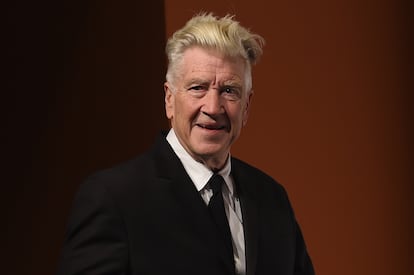
David Lynch, legendary director of ‘Blue Velvet’ and ‘Twin Peaks’, dies at 78
The filmmaker’s family confirmed his death in a social media post: ‘There’s a big hole in the world now that he’s no longer with us’

David Lynch, the visionary director who reshaped independent cinema in the United States in the 1980s, has passed away. His death was confirmed by his family on Facebook, with a statement reflecting on Lynch’s legacy as the creator of iconic works like Blue Velvet, The Elephant Man, and the cult TV series Twin Peaks.
“There’s a big hole in the world now that he’s no longer with us,” the post said. “But, as he would say, ‘Keep your eye on the donut and not on the hole.’”
Last year, Lynch revealed that he was suffering from pulmonary emphysema, but that he would continue to smoke (and work) despite the news. David Lynch was 78 years old.
Lynch’s family has not disclosed the cause of death. They concluded the brief statementwith “It’s a beautiful day with golden sunshine and blue skies all the way.”
This phrase pays tribute to Lynch’s weather reports, which he began doing in 2005 for an independent radio show hosted by Joe Escalante, the drummer for The Vandals. The reports were later shared on YouTube. During the pandemic, they were picked up and amplified by local public radio. In Southern California, listeners would hear Lynch’s distinct nasal voice emerge between songs, describing what was plainly visible to anyone looking out their window.
The anecdote captures the essence of an unclassifiable artist — one who painted, composed music, experimented with video, and proudly claimed never to have lived a day without practicing transcendental meditation. While his cinema created a unique aesthetic, marked by atmospheres steeped in mystery and surrealism, Lynch refused to limit himself to the label of filmmaker. In August of last year, he released Cellophane Memories, an album recorded with his frequent collaborator, artist Chrystabell. Lynch — who played guitar on the album — shared that the project was inspired by a nightmare that came to him during a late-night walk. This album, the eighth and final in his discography, revisited a recurring theme in his work: What is a mystery?
This question defined Twin Peaks, one of Lynch’s best-known productions. The surreal soap opera, centered on how the murder of Laura Palmer disrupts a small town in the northwestern United States, debuted on ABC in February 1990. Critics hailed the eight-episode first season, co-created with Mark Frost, as “audacious” and “maddeningly different.” It became an opportunity for Lynch to experiment beyond the typical time constraints of filmmaking. “There are certain kinds of moods, especially in getting at the mood of a murder mystery, that take time to conjure up,” he said at the time.
ABC approved a second season of 22 episodes, which concluded in 1991. Angelo Badalamenti, the composer behind the series’ iconic soundtrack and a frequent collaborator of Lynch, passed away in 2022.
In 2017, amidst the remake boom in Hollywood, Twin Peaks returned with 18 new episodes produced by Showtime, once again starring Kyle MacLachlan. Lynch, who was initially set to direct the nine episodes of the season, left the project after failing to reach a salary agreement with the studio.
This was not the first time the artist had clashed with a studio. Perhaps the most famous instance was his 1987 adaptation of Dune, Frank Herbert’s science fiction classic. Due to contract terms, Lynch lost control over the final version of the film. What audiences saw on screen was a version edited and approved by executives that Lynch despised. The frustration was so intense that Lynch, known for his difficult reputation on set, vowed he would never watch Denis Villeneuve’s version.
The impossible-to-classify Inland Empire, released in 2006, was Lynch’s last feature film. The movie prioritized visual and sensory experimentation over narrative, a trend that continued in the years that followed as Lynch created dozens of short and medium-length films. One of these, What Did Jack Do, was released on Netflix in 2017.
Inland Empire carried forward the path Lynch had started with Mulholland Drive, his 2001 film that has since become a contemporary classic. It tells the story of two actresses who embark on a surreal journey through Los Angeles after a freak car accident. The film was actually Lynch’s adaptation of a TV movie he made in 1999, starring the same actors. The movie version went on to receive two Oscar nominations, one of which was for Lynch’s direction.
Lynch won the Palme d’Or at Cannes in 1990 for Wild at Heart, starring Nicolas Cage and based on the novel by Barry Gifford, who enjoyed several adaptations of his work during that decade. Lynch was nominated for an Oscar four times. The first two nominations came in 1980 for The Elephant Man, which marked his entry into the American mainstream following his debut with Eraserhead (1977). Six years later, he was nominated for Best Director for Blue Velvet, though he lost out to Oliver Stone for Platoon. His final nomination was for Mulholland Drive, a film that helped launch actress Naomi Watts into Hollywood fame. In 2019, the Academy awarded Lynch an honorary Oscar, recognizing his groundbreaking career and “for fearlessly breaking boundaries in pursuit of his singular cinematic vision.”

No comments:
Post a Comment